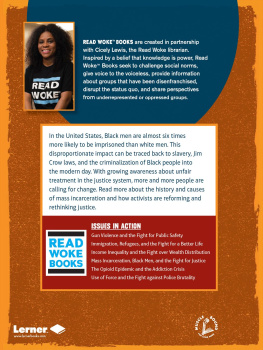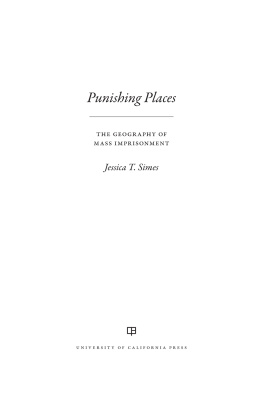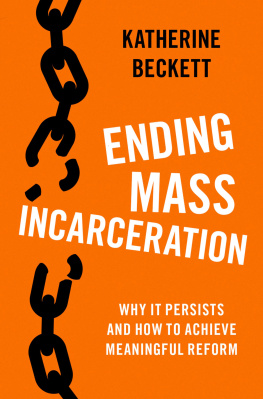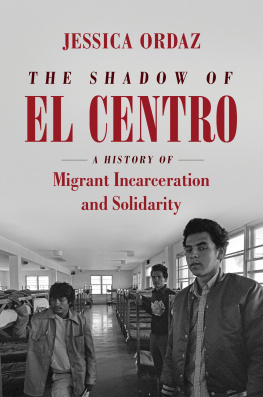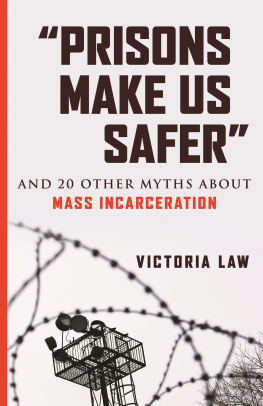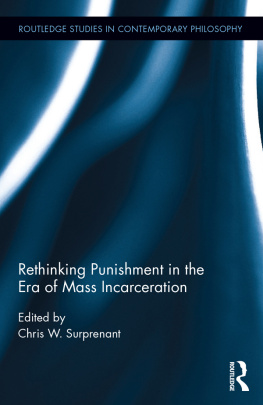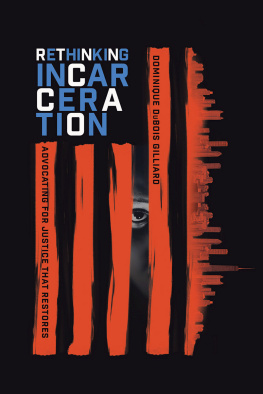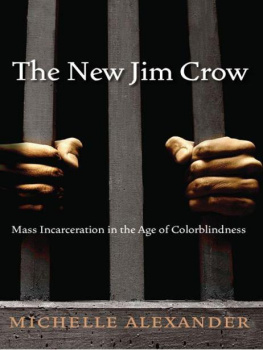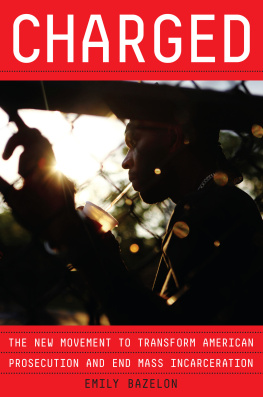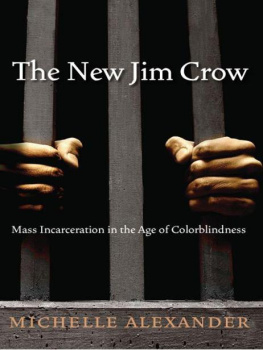Sylvia A. Harvey - The Shadow System: Mass Incarceration and the American Family
Here you can read online Sylvia A. Harvey - The Shadow System: Mass Incarceration and the American Family full text of the book (entire story) in english for free. Download pdf and epub, get meaning, cover and reviews about this ebook. year: 2020, publisher: PublicAffairs, genre: Detective and thriller. Description of the work, (preface) as well as reviews are available. Best literature library LitArk.com created for fans of good reading and offers a wide selection of genres:
Romance novel
Science fiction
Adventure
Detective
Science
History
Home and family
Prose
Art
Politics
Computer
Non-fiction
Religion
Business
Children
Humor
Choose a favorite category and find really read worthwhile books. Enjoy immersion in the world of imagination, feel the emotions of the characters or learn something new for yourself, make an fascinating discovery.

- Book:The Shadow System: Mass Incarceration and the American Family
- Author:
- Publisher:PublicAffairs
- Genre:
- Year:2020
- Rating:4 / 5
- Favourites:Add to favourites
- Your mark:
- 80
- 1
- 2
- 3
- 4
- 5
The Shadow System: Mass Incarceration and the American Family: summary, description and annotation
We offer to read an annotation, description, summary or preface (depends on what the author of the book "The Shadow System: Mass Incarceration and the American Family" wrote himself). If you haven't found the necessary information about the book — write in the comments, we will try to find it.
The Shadow System: Mass Incarceration and the American Family — read online for free the complete book (whole text) full work
Below is the text of the book, divided by pages. System saving the place of the last page read, allows you to conveniently read the book "The Shadow System: Mass Incarceration and the American Family" online for free, without having to search again every time where you left off. Put a bookmark, and you can go to the page where you finished reading at any time.
Font size:
Interval:
Bookmark:
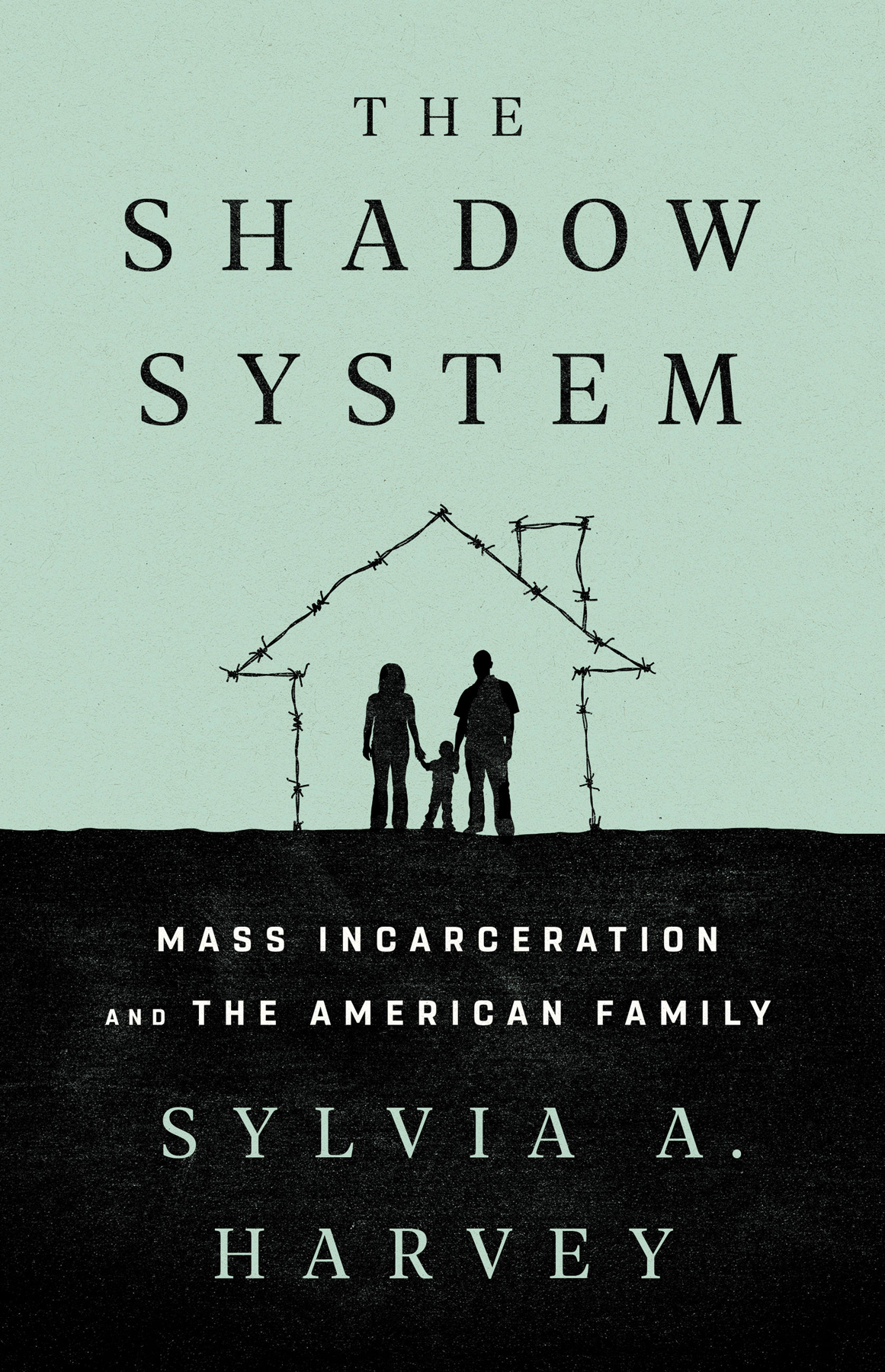
Please note that some of the names have been changed to protect the identities of some of the individuals in the book.
Copyright 2020 by Sylvia A. Harvey
Cover design by Pete Garceau
Cover copyright 2020 Hachette Book Group, Inc.
Hachette Book Group supports the right to free expression and the value of copyright. The purpose of copyright is to encourage writers and artists to produce the creative works that enrich our culture.
The scanning, uploading, and distribution of this book without permission is a theft of the authors intellectual property. If you would like permission to use material from the book (other than for review purposes), please contact permissions@hbgusa.com. Thank you for your support of the authors rights.
Bold Type Books
116 East 16th Street, 8th Floor New York, NY 10003
www.boldtypebooks.org
@BoldTypeBooks
First Edition: April 2020
Published by Bold Type Books, an imprint of Perseus Books, LLC, a subsidiary of Hachette Book Group, Inc. Bold Type Books is a co-publishing venture of the Type Media Center and Perseus Books.
The Hachette Speakers Bureau provides a wide range of authors for speaking events. To find out more, go to www.hachettespeakersbureau.com or call (866) 376-6591.
The publisher is not responsible for websites (or their content) that are not owned by the publisher.
Library of Congress Cataloging-in-Publication Data has been applied for.
ISBNs: 978-1-56858-880-3 (hardcover), 978-1-56858-882-7 (e-book)
E3-20200228-JV-NF-ORI
For my father, and my brothers
O ne weekend, my mom is making biscuits from scratch. The heady, sweet aroma of her homemade syrup wafts through our Oakland apartment. She stands at our kitchen counter, wrapped, as usual, in my fathers blue robe, flour coating her spice-toned hands. She has pulled her kinky black hair into a bun; her face is smooth, free from the Fashion Fair foundation she puts on when my father takes her dancing. She sways gently to the sound of the OJays on our record player. My father slips into the kitchen and dips a fork into the side of the skillet, taking the crispy edge of the potatoes. Before he can sneak a bite of bacon, my mom rallies her troops. Kiiids, she calls. My dad knows this playful tone. Come get your father. I abandon my cartoon, my brothers quit wrestling, and we dash into the kitchen. Surrounding my dad, laughter chopping the air, five sets of hands push on him. He stumbles, pretending the small shoves are powerful. Finally, were successfulwe drive him from the kitchen and into the living room with us. My mom, shaping the biscuits, laughs and looks at him victoriously. My dad smiles. He scribbles a note to his childhood sweetheart, Im sorry, can I have a piece of bacon? and sends me to the kitchen with it. At three, I am their only daughter and the baby of the family. My father knows I will return with a treat for him.
Our clan had a rhythm: my dad rose early for work, my brothers went off to school, and my mother and I were left to explore our day together. I was by her side as she baked cupcakes, made Halloween costumes, and attended PTA meetings for my brothers. The weekend, void of work and school, was prime family time. After Saturdays big breakfast, we always went on an adventure: fishing on the pier, to the zoo to gaze at the monkeys, or on a two-hour mini road trip to the Santa Cruz Beach Boardwalk. In between all the joy and excursions, my mother had bouts with being sick. Labored breathing, coughing, and wheezing seemed to be normal parts of my mothers life, my brothers toothey all had horrific asthma. The doctors suggested my mom slow down, but she couldnt, she wouldnt. Engaging and taking care of us gave her life.
My tiny four-year-old hand slams against the doctors barren face when he tells me my mother has died. Asthma, a formidable foe, had greedily sucked away her last breath. The familiar buttery scent of homemade biscuits fades. Missing her and the aroma, I ask my dad for Gods phone number, so I can tell him to send my mom home. My dads hazel eyes well up. Finally, I sense my mother is gone forever.
Eventually, I settle into the idea of a new duo. My father and I become inseparable. I relish the mornings he gathers my thick, intractable curly hair and struggles braiding it. I dont mind the days he simply tucks my uncombed locks under a baseball cap. He asks his signature question, Why are you so pretty? I have the answer memorized, Because my fathers so handsome! I lock onto his right leg, and he carries me on his journeyseven to work. Hes determined to ward off the vulture-like swoop of Child Protective Services. He parks his car on the dead-end block where the construction site begins, and I sit in the back seat playing with my Cabbage Patch doll, while hes banging on nails or laying bricks. He checks on me often, sometimes giving me snacks and asking, Hows my angel? A few days later, his supervisor realizes Im in the car and tells him its not allowed.
He doesnt return to work.
That same year, following my mothers death, my fathers life as widower and doting dad fuses with that of fledgling drug dealer. He lets my mothers death break his sense of self. Every time my brothers and I tell him he doesnt do something like Mommy, he loses a measure of himself. He believes selling drugs is the perfect solution to earning his lost income, feeling worthy, and being present in our lives. I am just happy to be spending the same amount of time with him that I had with my mother. He helps my brothers with their homework, takes us to the doctor, and makes dinner on the nights we dont devour our favorite Kwik Way hamburgers.
A year later, still delighting in my alone time with him, I place one small foot in front of the other, proudly calling out, Dad! My cheeks tip to the sky and my eyes shut. I laugh. Look, Daddy, look! Finally, after days of practice, Ive mastered the art of skipping. He watches me skip down the street. Thats when a cruiser turns onto our block. My father senses trouble. The police approach. He ushers me to the house. Baby, go inside. Hes parked his blue Nova backward on the wrong side of the street, and more than eighteen inches from the curb. Maybe the police are going to ticket him or tell him to move his car.
My dad is arrested, but not for violating parking laws. Being a drug dealer meant he was thrust into street life and all that it encompassed. He was implicated in a drug-related homicide. Eventually, my brothers and I go live with my maternal grandmother. I cry every day for a year. I prepare to keep doing it until my father returns to pick me up.
He never does. He seems to vanish.
I N 1986, MY FATHER WAS convicted of second-degree murder. At twenty-nine years old, he began serving sixteen years to life in prison.
I was five years old. I thought I was the only kid with a parent in prison. I was wrong. It took decades for me to realize my father and I represented sobering statistics. Back then we were among hundreds of thousands of families who had a relative in prison. Now were among millions. Only as an adult was I able to reflect on the oppressive conditions mauling my community or how the sudden ubiquity of crack cocaine was changing the complexion of my community.
In the 1980s, Oakland was marginalized, many of its residents excluded. My family lived in the flatlands, not the hillsa more affluent section of Oakland. Redlining systematically denied black people access to credit and home and business loans, which ensured housing segregation for decades to come. We were relegated to a poverty-saturated, resource-depleted, racially segregated community shaped by structural racism. These racist exclusionary practices perpetuated poverty and economic insecurity, which made people, especially men, in neighborhoods like mine ripe for offending, arrest, and extreme sentencing, ultimately decimating families.
Font size:
Interval:
Bookmark:
Similar books «The Shadow System: Mass Incarceration and the American Family»
Look at similar books to The Shadow System: Mass Incarceration and the American Family. We have selected literature similar in name and meaning in the hope of providing readers with more options to find new, interesting, not yet read works.
Discussion, reviews of the book The Shadow System: Mass Incarceration and the American Family and just readers' own opinions. Leave your comments, write what you think about the work, its meaning or the main characters. Specify what exactly you liked and what you didn't like, and why you think so.

